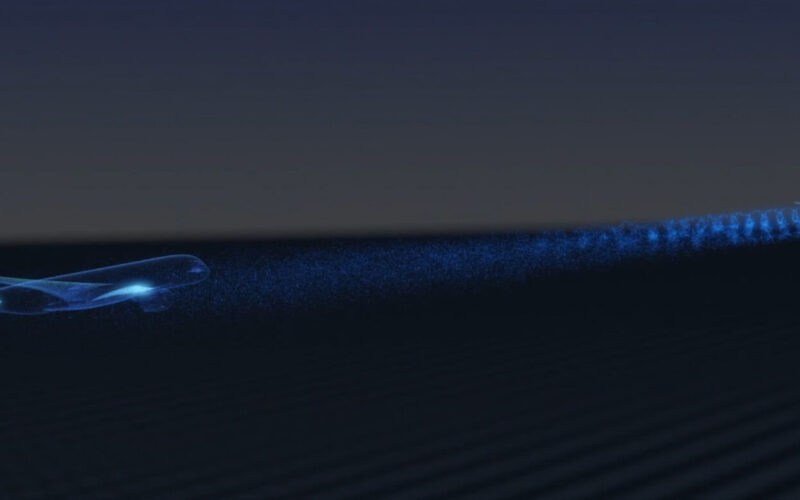During Dubai Airshow 2019, Airbus unveiled yet another technology demonstrator inspired by biomimicry. With fello’fly, the European manufacturer claims that mimicking the formation flight of wild geese could allow substantial savings in fuel.
To migrate over thousands of kilometers, wild geese adopt an inverted V formation, a technique that helps them save their efforts. The turbulence created by the wing flaps of the leader allows for its followers to save up to 20% in energy.
According to Airbus, a similar technique could be applied to aircraft. “Through fello’fly, a follower aircraft will retrieve the energy lost by the wake of a leader aircraft, by flying in the smooth updraft of air it creates,” says the manufacturer, which claims that “this provides lift to the follower aircraft allowing it to decrease engine thrust and therefore reduce fuel consumption in the range of 5-10% per trip.”
Such a formation would simply be achieved using pilot assistance tools that make sure they are aligned and maintain the same distance, at a steady altitude. Flight tests should commence in 2020, using two A350 aircraft. Several airlines, that would need to coordinate their flight schedules, as well as air traffic controllers are expected to participate in the testing phase.
Regulators would also need to give their approval, as this technique requires aircraft to fly around 3 kilometers (1.86 nm) from each other, a shorter distance than current rules regarding horizontal separation allow. To avoid wake turbulence, planes are required to maintain a distance of 7.5 to 15 kilometers (4 to 8 nm) when cruising.
Airbus is no stranger to biomimicry. In the past year, it revealed several concepts and projects inspired by sharks, eagles, and albatrosses.

